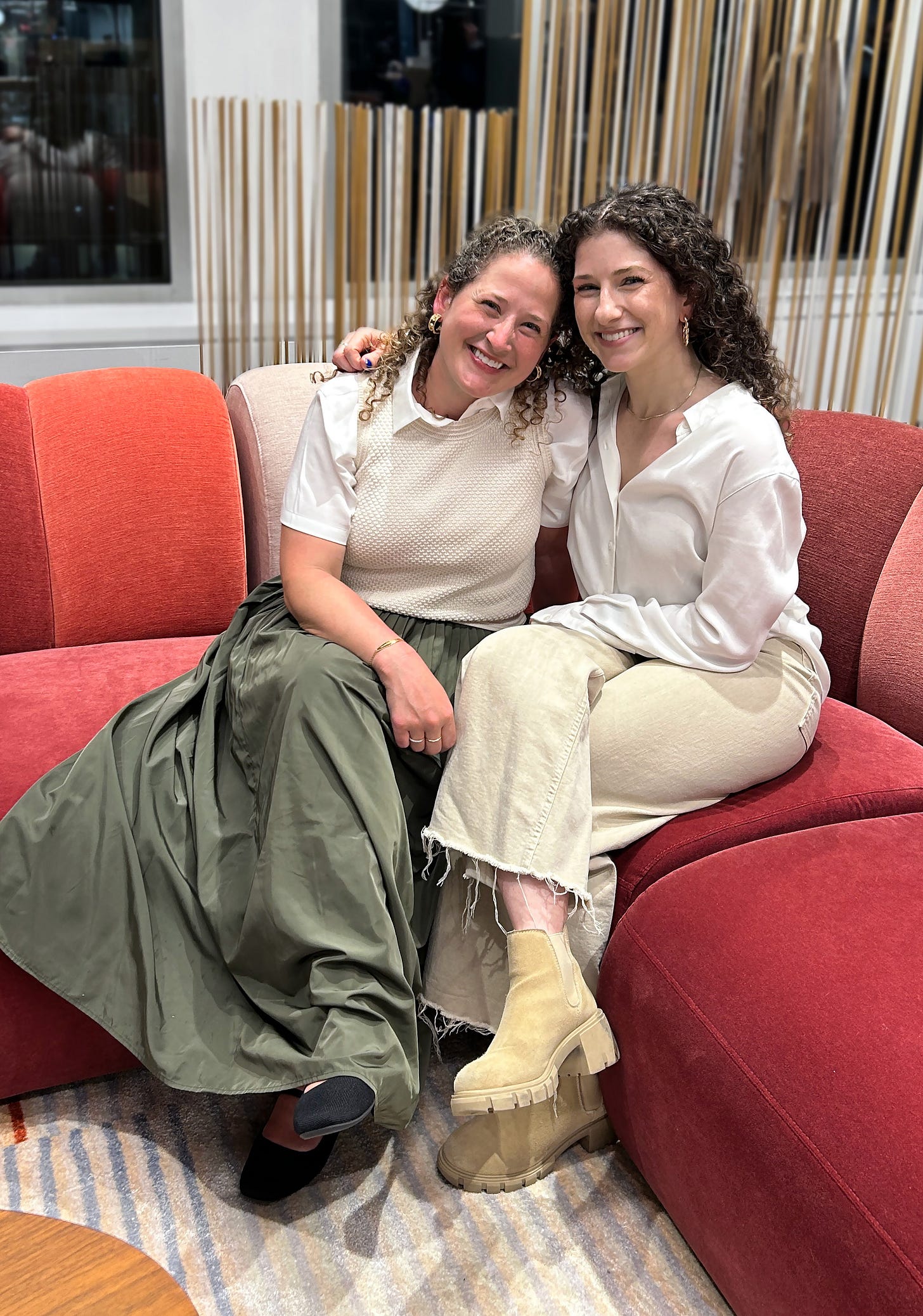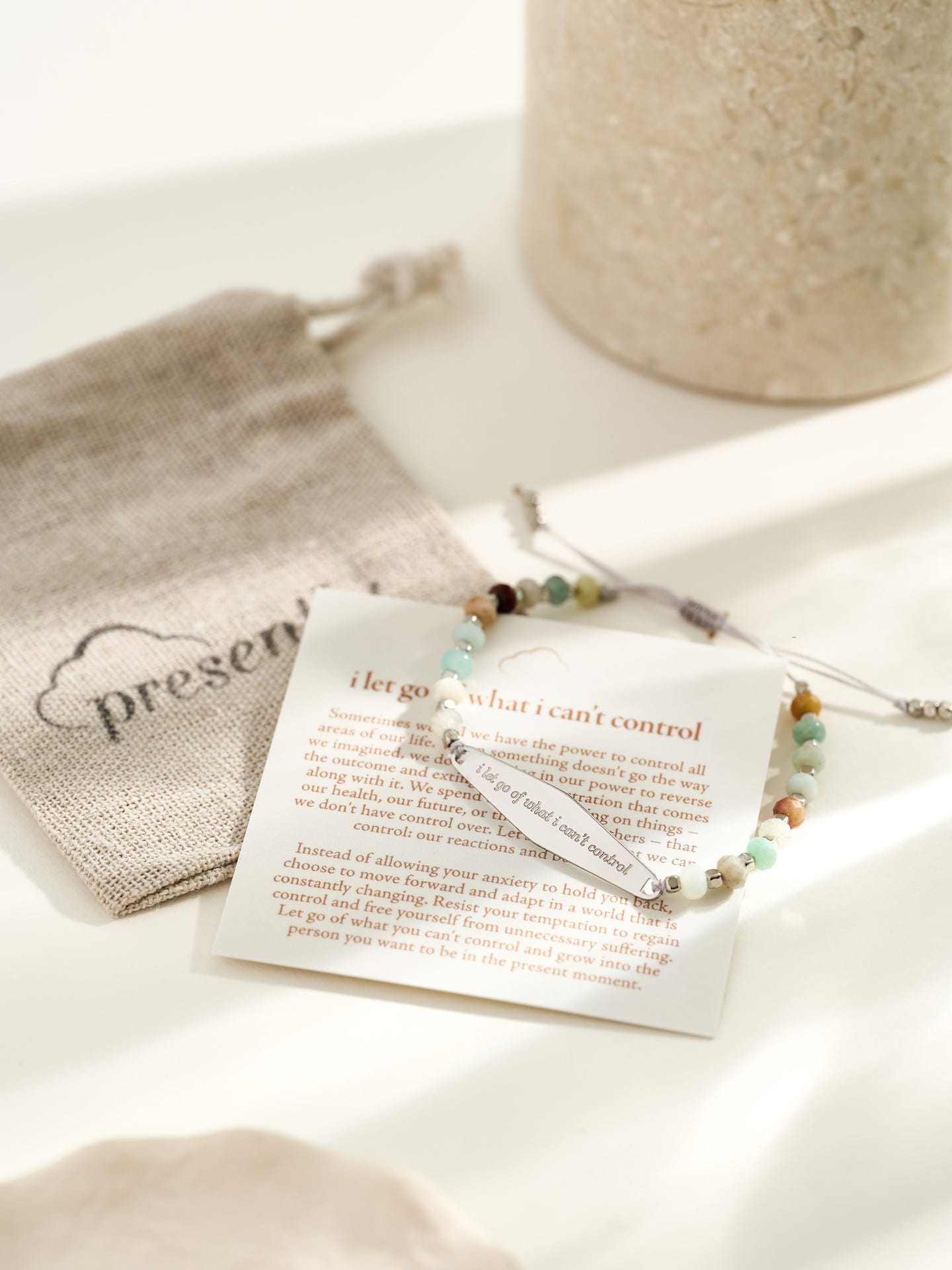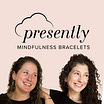Mind-Body-Soul #6: Reader Takeover!
Postpartum expectations, finding purpose and letting go of control.
When Emily, a reader of Human/Mother, reached out a couple of months ago to express her appreciation of my work here and shared a slice of her own personal story, I knew that it was the start of a beautiful collaboration and friendship. This reader takeover of my Mind-Body-Soul series, today, is the result of that initial conversation—that first spark that occurs when creativity and vulnerability meet.
So, without further ado, please enjoy Emily’s thoughtful and inspiring words.
I am not a mom. I am not about to be a mom. I will not try to become a mom for another few (or more) years. I bet you’re wondering, “If you’re not a mom, what the heck are you doing here?”
Well — to put it simply — I am a cycle-breaker, trying to reach more cycle-breakers to share the tools I’ve learned to break said cycles.
My name is Emily. My sister, Lindsay, and I both have OCD and anxiety and in 2021 we founded Presently. After years of therapy, we both realized that the hardest part wasn’t learning the tools—it was accessing them in moments of intense anxiety. We thought about how helpful it would be to have a bracelet to remind us of what our therapists had taught us. But nothing like that existed. So, we created it. Presently bracelets are engraved with phrases that have helped us interrupt the anxious spiral. Phrases that we know can help others do the same.
After reading her Mind-Body-Soul series, I reached out to Katrina to see if she might be interested in sharing our story with her audience. When she offered me the chance to write my own guest post, my immediate reaction was, heck yeah, I could write a piece for people who intentionally change negative patterns— that’s my bread and butter.
But then I remembered: I’m not just writing for Presently’s audience. I’m writing for moms.
To do that, I needed to step outside my comfort zone.
After all, I am just now entering the era of my life where my reaction to someone telling me they’re pregnant is no longer “oh, shit.”
Recently, I’ve started thinking about what it will mean to be a parent with OCD and anxiety—especially with all of my health-focused and decision-making anxiety. I already spiral over my own well-being; I can’t imagine how that might intensify when I’m making decisions for another human being.
So, in an effort to better understand what’s ahead, I sat down with a friend of mine, also named Emily, who became a mom about a year ago. And while I had been so focused on celebrating the excitement of her new baby, I realized we hadn’t actually sat down and talked about her mental health since she gave birth.
The first thing she mentioned—something I hadn’t considered when I asked to interview her—was that shortly after she gave birth, she learned her brain tumor had regrown after having it removed a year before she got pregnant. She said, “Obviously, I won’t talk about that since I know it’s focused on being a mom and whatnot,” but I told her, “I want to talk about your mental health after you had Charlie, so if that includes dealing with this tumor then that’s what it includes.”
She started off by saying she had these grand expectations. Obviously, she knew giving birth would be hard, but she thought maybe—just maybe—the postpartum period would feel a little like a fairy tale. That her husband would be in the delivery room the whole time—except he tested positive for COVID and had to leave the hospital. That she’d be able to take beautiful photos and introduce her baby to the world—except radiation treatments took over those early weeks. That her body would bounce back, that she could simply stand up and hold her baby, that she’d be able to host visitors with every blanket folded and every chair pushed in. That joy would be the only thing she felt because, after all, she had a perfectly healthy baby boy.
But postpartum wasn’t what she expected. “No one prepares you for the exhaustion and the emotional component of your expectations vs. reality, and feeling guilty that you’re upset that you’re going through things, yet you have this perfectly healthy baby,” explained Emily, “whether you are in the perfect mental state or not, with having a baby there are so many different components and no one can prepare you for it.”
And yet, what she also didn’t expect was the strength she had to get through it all. To navigate postpartum recovery and cancer treatment at the same time. How did she do it? Here's what she had to say:
Mind
“I think the exhaustion hits you so differently. It emphasizes any concern or any worry that you have and it puts you in this can’t-do-anything mindset. But I think just having a crazy awesome support system is how I kept the ball rolling.
Holding it all together and realizing that it wasn’t all about me anymore and it was about making sure that, although something challenging came up in my life, I was going to have to continue to do it the best I could. Worrying wasn’t going to get me anywhere.
I now stop the rumination because there’s no time for that. Sometimes when I get my period or when I'm stressed, I have this feeling of dizziness or visual unevenness. And that puts me in an anxious state. My thought jumps immediately to “the tumor is growing back.” The thoughts come and go. But, I’ve just realized that there are better ways to spend my time than to ruminate.
It’s all about this efficiency with time.
You work your entire schedule around your baby's naps. When you’re at work you do your work. After work you have a little bit of time to go to the grocery store, you come home, throw things in a pot or pan before I’m basically on again. And you realize that instead of thinking about the things you’re going to do and how to do them you kind of just need to jump in and do them.
I have a better grasp of pushing down on the brake and being able to stop myself with stress and realizing that there are so many bigger things in life including my family’s health and what’s going on that’s real.
At first, I didn’t watch TV for months. We were just in survival mode. But eventually, we realized we needed to get back into that routine. Yeah, sometimes we go to bed a little later now, but it’s so good for us. You can’t go 100 miles per hour and then just turn off and expect to fall asleep. That’s not good. We were robotic. Programmed.
I’ve always been super strict about my sleep. If I wasn’t in bed by 10, I’d get anxious—like I’d be a mess the next day. But now I think… What’s the difference? I’ll be tired at work? So, I’ll have a cup of coffee. Do I really want to skip time with my husband just to be in bed earlier? Is it that big of a deal?
Of course, there are days I need sleep, and I try to plan for that. But honestly, most of it is poor time management. I’d come home and scroll on my phone, doing things that don’t actually matter. So now I’m trying to be more intentional. If I have time, I want to do something that fills me up. Not scroll Instagram—maybe do Wordle, watch a show I actually enjoy. Things that are good for me, that make me feel good, instead of wasting time.”
Body
“Postpartum recovery is hard.
Especially with everyone wanting to come see the baby. You’re extremely uncomfortable and all these people that want to see you and you're tired and the baby is adjusting. There are a lot of things that I just didn’t think about after having a baby. Initially, I wanted to have everyone at the hospital but it was so overwhelming. I was tired and my body was recovering. Of course, supportive short visits are great, but I don’t think it’s talked about enough how much the mother needs to recover.
I didn’t realize how much pain I would be in. I thought it was gonna be easy and that I could just get up and start holding Charlie but you realize that it takes a real toll on your body.
Now with all these new moms I’m like ‘let me bring over dinner,’ because for me I was cleaning all these bottles and breast pumps and making sure that they’re clean and sanitized was a lot. We didn’t have time for ourselves and it’s so important that you have a really good support system and make sure your family knows you love them but time has to be limited. It’s okay to be selfish because ultimately your healing as a mother is going to be the best for all.
It’s very hard to manage the excitement vs. the realization that your body needs rest. And being okay with telling people that you’re tired or that they can only come for a short period of time.
My mom coming over and her telling me to sit down and that she was gonna bring food over and do our laundry, helped me realize I needed to slow down. And when Jordan told me to relax when I had the opportunity to really relax made me realize that the blanket that I thought so badly had to be folded could wait."
Soul
"After becoming a mom, I realized who is important in my life. Those are the people that I want to be around.
Looking back on what I’ve gone through, it has helped me become more of a point person for people that are going through the same things.
You know that silly phrase “turning lemons into lemonade”? I see opportunity like an open window — when something happens in my life that isn’t so great and easy to deal with. Recognizing how I dealt with it allows me to help others.
I think about my old self, before I had Charlie, and how I would probably cry and I wouldn't be able to go about my day. But now, my son can't take care of himself. That’s where my attention had to go. I basically had to put my concerns on the back burner and recognize that yes, this was a huge concern of mine but it was something that was going to be addressed and taken care of.
I didn’t want this medical condition to be the main part of my life. There were proper actions to take and it was being handled. That’s when I said, I just have to keep going through life.
Having the baby was the best thing. There were times that I was more emotional because I had a lot going on but ultimately having Charlie— he just made us all go through the actions with joy and love — brought such brightness to our life.
That’s why his Hebrew name means bright. He was the light at the end of the tunnel."
Here’s What I Learned:
As I listened to my friend’s story, I found that her postpartum experiences ladder up to this idea of control.
She recognizes the things she has no control over—this medical news that almost overshadowed a really important time in her and her baby’s life. But she also recognizes the things she does have control over—how her time is spent and who she spends it with.
As I mentioned earlier… I am a cycle-breaker, trying to reach more cycle-breakers to share the tools I’ve learned to break said cycles. So, the way I break my own negative thought patterns is through CBT and mindfulness. Reminders like “brave the uncomfortable,” “embrace uncertainty,” and “I let go of what I can’t control,” help me redirect my attention to things that really matter.
And in this case, what I’ve learned is that the reminder “I let go of what I can’t control” can help those who navigate the unexpected — especially the unexpected components of life after giving birth.
And while I might not have gained clarity on what I can expect my postpartum experience to look exactly like, what I have gained is reassurance that I have the tools to manage whatever lies ahead.
Love and light,
Emily
Thank you so much, Emily, for sharing this open and honest conversation with us. What a beautiful unfolding of truths! If you’re interested in learning more about Emily’s wonderful company, you can find relevant links below.
Full transparency: I am NOT receiving any sort of commission or monetary benefit from this collaboration. I truly believe in Emily and Presently’s mission, a mission that I think we can all benefit from.
Take Presently’s quiz to find the reminder your anxiety needs → https://presentlybracelets.com/pages/take-the-quiz
Follow Presently: instagram.com/presentlybracelets | tiktok.com/@presentlybracelets









Beautifully written!